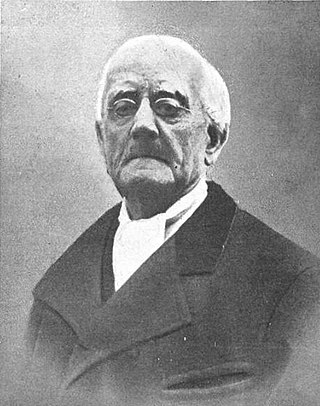Eduardo Benot
Spanish author From Wikipedia, the free encyclopedia
Eduardo Benot Rodríguez (26 November 1822 – 27 July 1907) was a Spanish lexicographer, academic, poet, educator and politician advocate of federal republicanism. Follower of Francisco Pi y Margall, he briefly served as Minister of Development during the First Spanish Republic.
Eduardo Benot | |
|---|---|
 | |
| Ministry of Development | |
| In office 11 – 28 June 1873 | |
| Preceded by | Eduardo Chao |
| Succeeded by | Ramón Pérez Costales |
| Member of the Congress of Deputies | |
| In office 29 March 1893 – 1 July 1895 | |
| Constituency | Madrid |
| Member of the Congress of Deputies | |
| In office 5 June 1873 – 8 January 1874 | |
| Constituency | Algeciras (Cádiz) |
| Senator | |
| In office 1872–1873 | |
| Constituency | Province of Girona |
| Member of the Congress of Deputies | |
| In office 16 February 1869 – 2 January 1871 | |
| Constituency | Jerez de la Frontera (Cádiz) |
| Seat Z of the Real Academia Española | |
| In office 14 April 1889 – 27 July 1907 | |
| Preceded by | Cándido Nocedal |
| Succeeded by | José Rodríguez Carracido |
| Personal details | |
| Born | 26 November 1822 Cádiz, Spain |
| Died | 27 July 1907 (aged 84) Madrid, Spain |
| Political party | Federal Democratic Republican Party |
| Occupation | Politician, lexicographer, poet, educator, academic, editor, journalist, mathematician, playwright, academic |
Biography
Summarize
Perspective
Early life
Born in Cádiz on 26 November 1822, his father had Italian origin.[1] He was a feeble child during infancy.[1] He took studies at the Colegio de San Pedro and later the Colegio de San Felipe Neri.[2]
Already writing as teenager for the newspaper El Defensor del Pueblo, he later wrote for La Alborada, as well he authored 3 theatre pieces.[3]
Working since 1840 for the municipal beneficence office,[4] he was hired as teacher at San Felipe Neri in 1848 (soon starting to publish grammar books),[5] and as lecturer on Geodesy and Astronomy at the Naval Observatory in San Fernando (1857).[6]
Sexenio Democrático
After the 1868 Glorious Revolution, Benot became a member of the Constituent Cortes formed upon the 1869 election in representation of the district of Jerez de la Frontera (Cádiz),[7] overcoming Juan Prim at the election,[3] although Prim was elected anyway as he was candidate in another district.
He was one of the supporters of a manifesto promoted by Francisco Pi y Margall on 10 May 1870 which reaffirmed on "pactist" federalism, in response to the so-called "Declaration of the Republican Press" (published on 7 May 1870), which attempted to resignify federalism as a simple administrative decentralization.[8] He was later elected Senator in representation of the province of Girona in the 1872–1873 period.[9]
Following the proclamation of the First Spanish Republic in February 1873, he earned again a seat at the Congress of Deputies in representation of the district of Algeciras (Cádiz) at the May 1873 election.[10] He was appointed as Minister of Development of the executive power presided by Pi y Margall in June 1873.[11]
His short ministerial tenure, barely 17 days, delivered the creation of the Instituto Geográfico y Estadístico (predecessor to both the National Geographical Institute and the National Statistics Institute), and the draft of the Ley de 24 de julio 1873, sobre el trabajo en los talleres y la instrucción en las escuelas de los niños obreros (published after his exit from government), the so-called "Benot Law" regulating child labour, entailing the first State intervention in labour relations ever in Spain.[12][13] The law failed to be effectively enforced, however.[12] He also forced ayuntamientos to pay for teachers' wage arrears.[14][13] He was replaced by Ramón Pérez Costales at the ministerial portfolio.[11]
He exiled after the 1874 coup of Pavía to Portugal, where he began to edit the bi-weekly La Europa, only to return to Madrid some time later, as Cánovas del Castillo achieved, via a requirement for expulsion to the Portuguese authorities, the forced return to Spain of Benot.[15][14]
Later life

Already a correspondent member of the Royal Spanish Academy since 1860,[16] he was later elected as numerary member, taking possession of the Chair Z on 14 April 1889, reading ¿Qué es hablar? a speech replied by Víctor Balaguer.[17] His contributions to Spanish grammar have received diverse and lavish praises, but they tend to agree in pointing out the "modernity" of his approaches, sometimes even considered to be a "direct precursor" of "modern linguistics".[18]
Benot would return to the Lower House, elected in representation of Madrid at the 1893 election.[19]
He replaced Pi y Margall at the helm of the Federal Democratic Republican Party when the latter died.[15] He could not however avoid the fracture of the party in May 1905.[20] Catalanist republicans would reject from then on the insertion within the main stem of the Spanish left-wing.[21]

Ill and progressively blind since 1901, he died poor at Calle del Marqués de Villamagna 6, Madrid, on 27 July 1907.[22][23] The funeral procession that took place on the next day was attended by Picón, Fernández y González, Azcárate, Salmerón and Labra and by an attendance formed chiefly by republican sympathizers.[24] Benot was buried at the Civil Cemetery in the Necrópolis del Este, in the same tomb Pi y Margall had been initially buried prior to the transfer of its corpse to a specific mausoleum funded via popular subscription.[24]
References
Wikiwand - on
Seamless Wikipedia browsing. On steroids.
